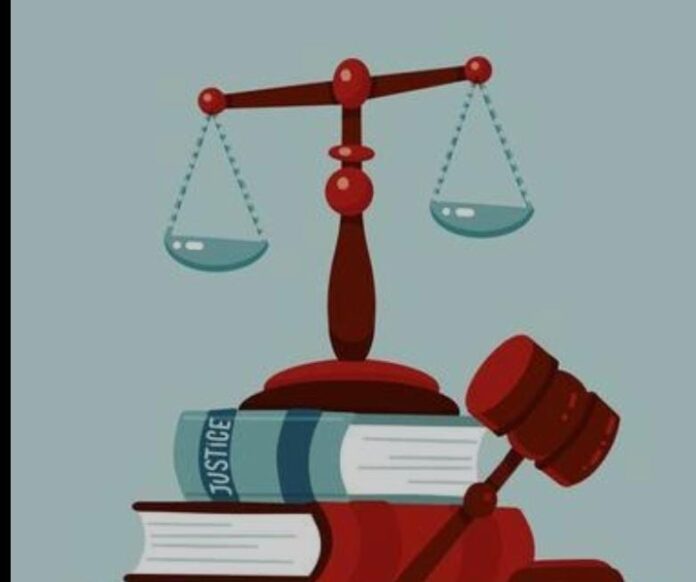Sanjay Pandey
The recent statement by Vice President Jagdeep Dhankhar that only Parliament holds the authority to remove a high court judge has reignited the debate over judicial accountability and independence. This declaration comes in response to the impeachment notice filed by 55 opposition MPs against Justice Shekhar Yadav of the Allahabad High Court. The opposition claims that Justice Yadav’s controversial remarks at a Vishva Hindu Parishad (VHP) event constitute hate speech and incitement to communal disharmony, thus warranting his removal under Article 124(4) of the Constitution and the Judges’ (Inquiry) Act, 1968.
India has witnessed attempts to impeach judges in the past, but none have led to actual removal. The impeachment proceedings against Justice V. Ramaswami in 1993, accused of financial misappropriation, failed due to political maneuvering despite the inquiry committee finding him guilty. Similarly, Justice Soumitra Sen of the Calcutta High Court resigned in 2011 before the impeachment motion could be completed, and Justice P.D. Dinakaran resigned in 2011 amid allegations of corruption and land grabbing. These cases highlight the political and procedural complexities involved in the removal of a judge.
Justice Shekhar Yadav’s remarks at the VHP event allegedly contained inflammatory statements targeting minorities, violating the principles enshrined in the Constitution and the Restatement of Values of Judicial Life, 1997. While judges enjoy the right to free speech, their public statements must reflect impartiality and constitutional fidelity. The core issue is whether Justice Yadav’s words compromised his ability to deliver unbiased judgments, which is essential for maintaining public trust in the judiciary.
Legal scholars and constitutional experts have offered divided opinions on the matter. Some argue that judges should refrain from making political or communal statements, as it undermines their credibility and affects the perception of judicial neutrality. Senior advocate Prashant Bhushan remarked, “Judges are expected to maintain judicial discipline. If they engage in public discourse that fuels communal sentiments, it directly violates their ethical obligations.” On the other hand, former Attorney General Mukul Rohatgi contends, “While judicial accountability is necessary, the mechanism for impeachment must not become a tool for political vendetta.”
Furthermore, the Supreme Court’s intervention, wherein Chief Justice of India Sanjiv Khanna-led collegium advised Justice Yadav to exercise restraint, signals an internal acknowledgment of the gravity of the situation. However, whether this will suffice remains uncertain, as the opposition continues to push for impeachment.
The judiciary functions as a pillar of democracy, distinct from legislative and executive influences. When judges participate in politically charged events or make statements that align with particular ideologies, it risks eroding the fundamental principle of judicial neutrality. The sanctity of judicial pronouncements lies in their ability to remain detached from political or communal biases. The judiciary must be perceived as an institution that delivers justice without fear or favor. Any deviation from this principle leads to a crisis of confidence in the legal system.
Vice President Dhankhar’s assertion that only Parliament can remove a judge reinforces the constitutional framework governing judicial impeachment. This is a critical reminder that due process, as enshrined in the Constitution, must be followed to ensure fairness. However, it also raises the question of whether Parliament’s role in judicial removal is purely procedural or if political considerations overshadow its effectiveness. The reluctance or inability of Parliament to act decisively in previous impeachment cases suggests that the judiciary might require a more robust internal accountability mechanism.
The controversy surrounding Justice Shekhar Yadav’s remarks and the subsequent impeachment debate underscore the delicate balance between judicial independence and accountability. The process of impeachment, while constitutionally mandated, must not be reduced to a political tool, nor should it shield judges from legitimate scrutiny. This episode serves as an inflection point for India’s judiciary, reinforcing the need for a structured discourse on judicial conduct, the limits of free speech for judges, and the mechanisms to ensure accountability without political interference. In the end, upholding the sanctity of the judiciary and the democratic principles of India should be the paramount objective.
( Author, a seasoned bilingual journalist and Media Educator, is an expert on Jharkhand’s sociopolitical landscape.He can be reached at Pandeysanja945@gmail.com)


